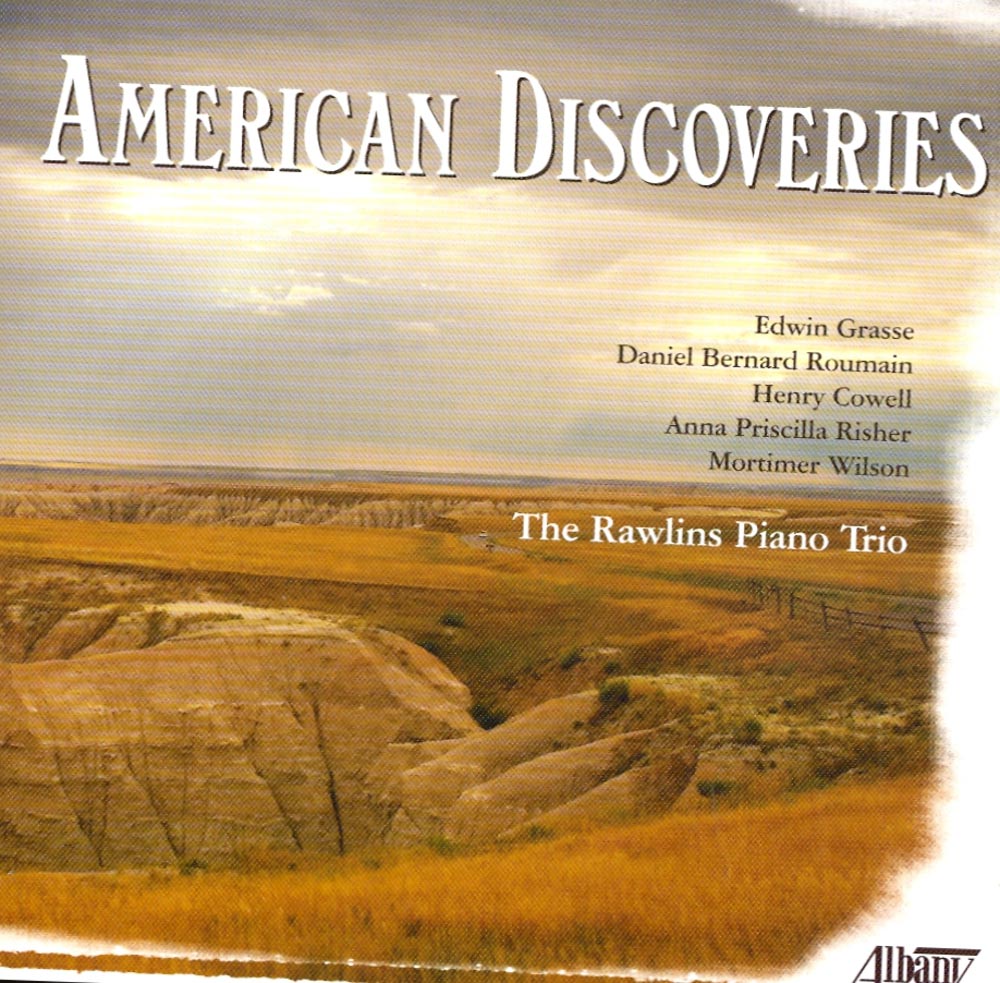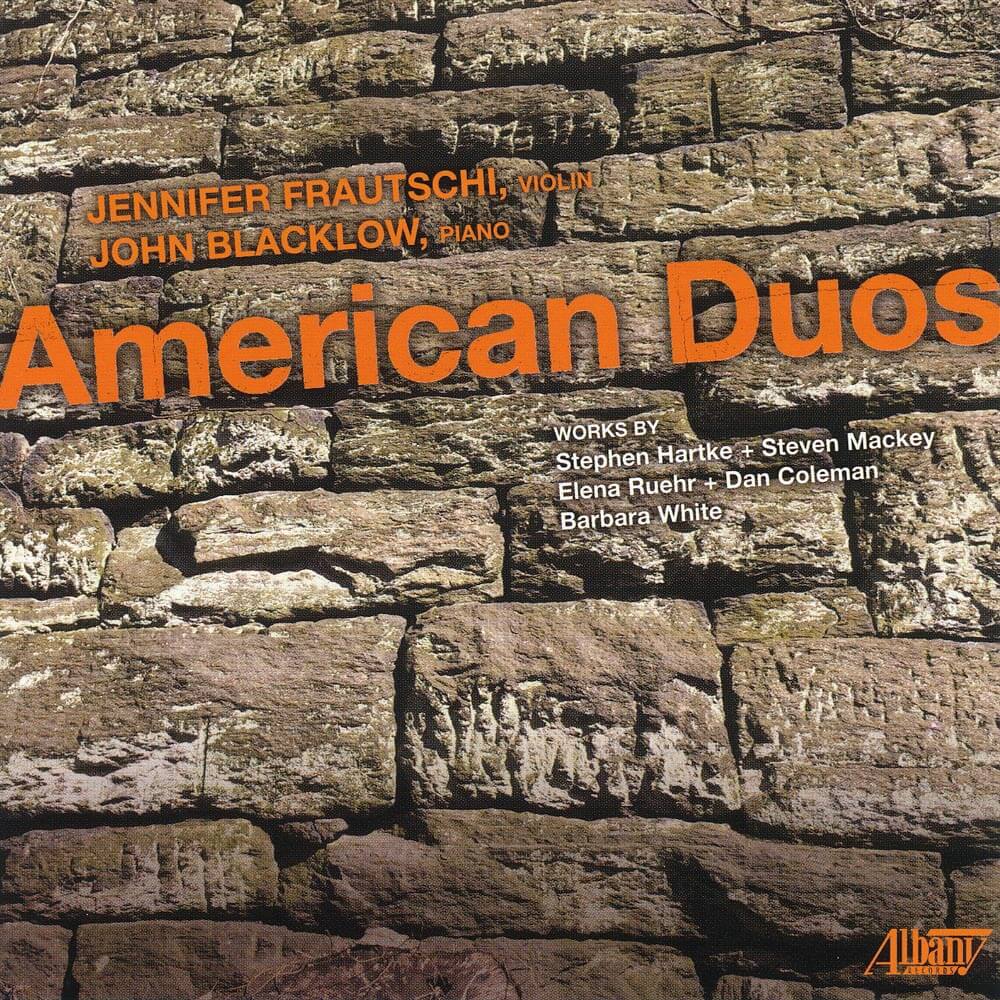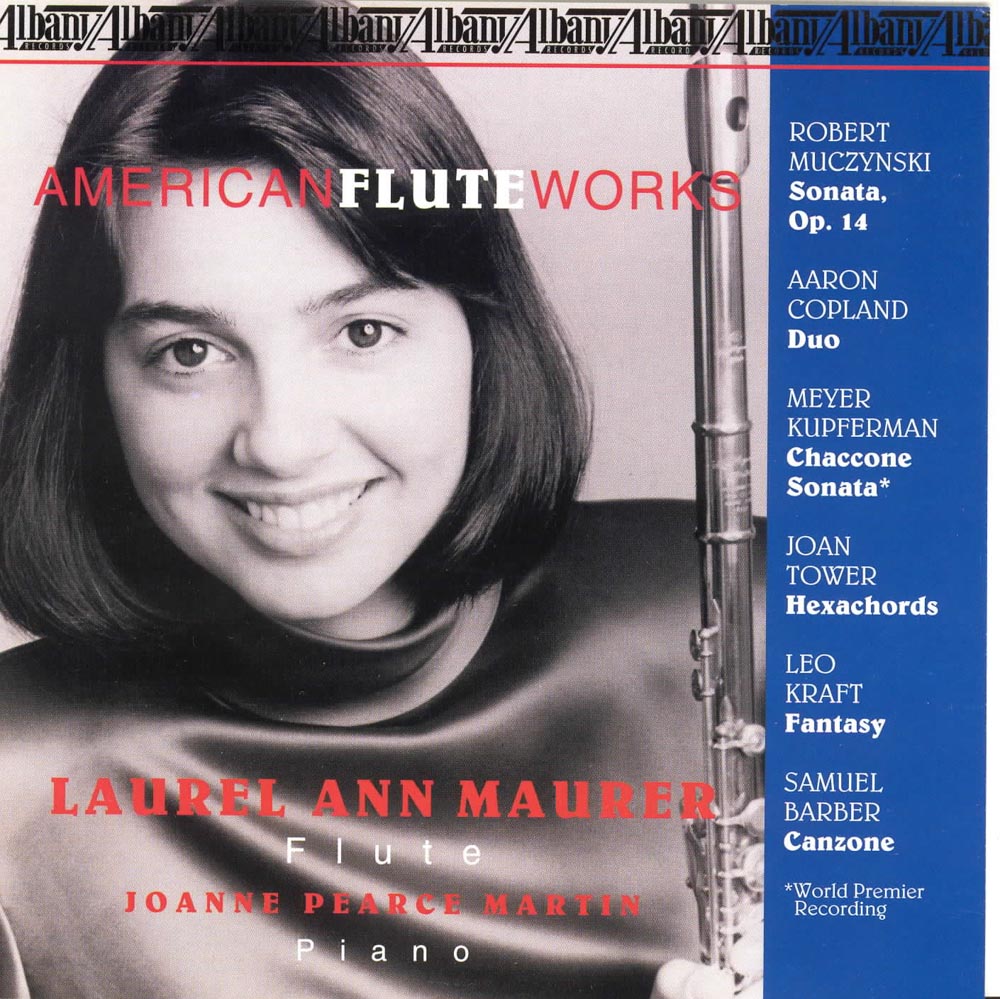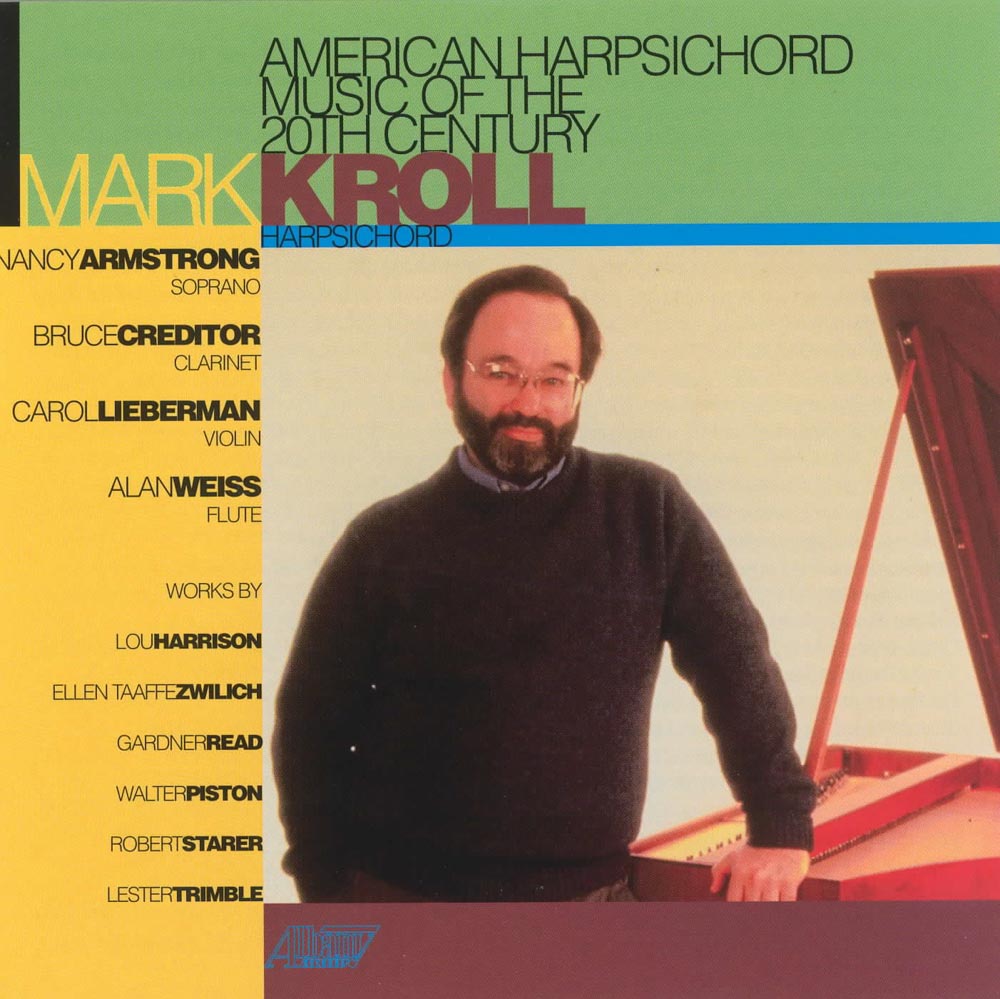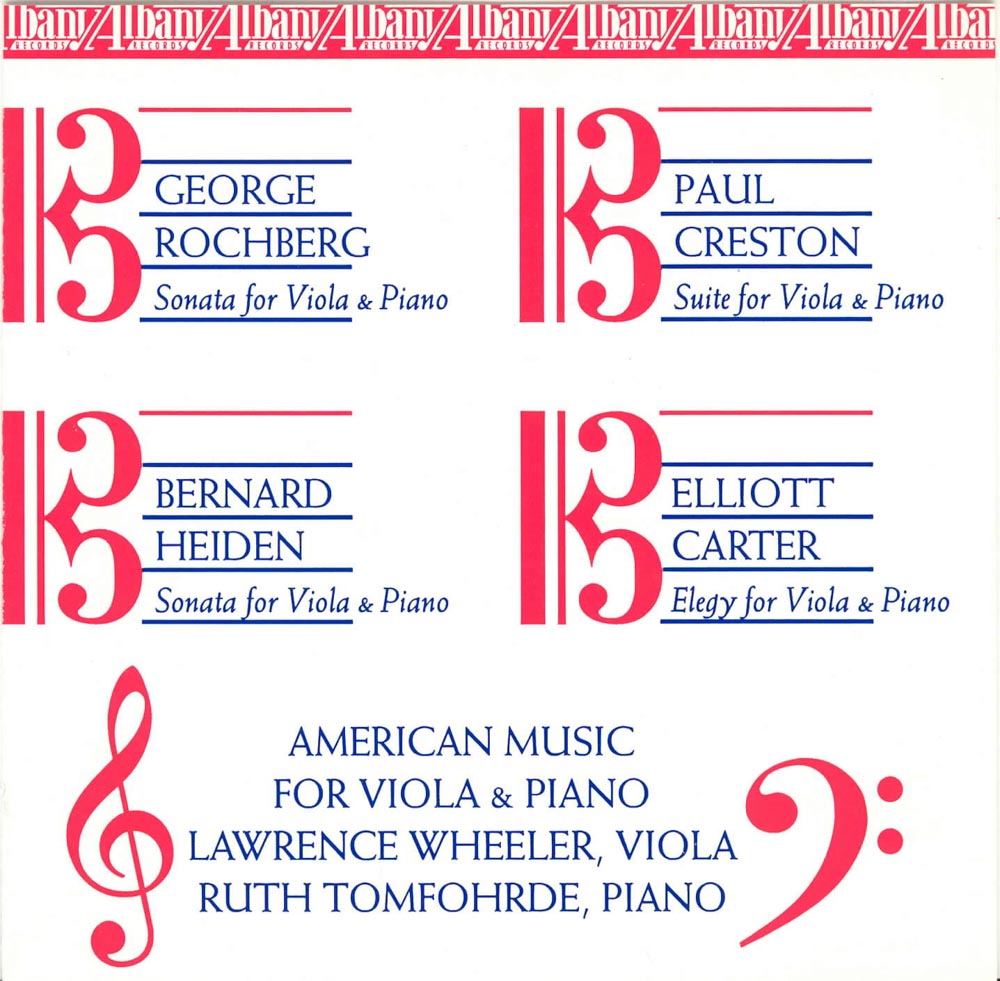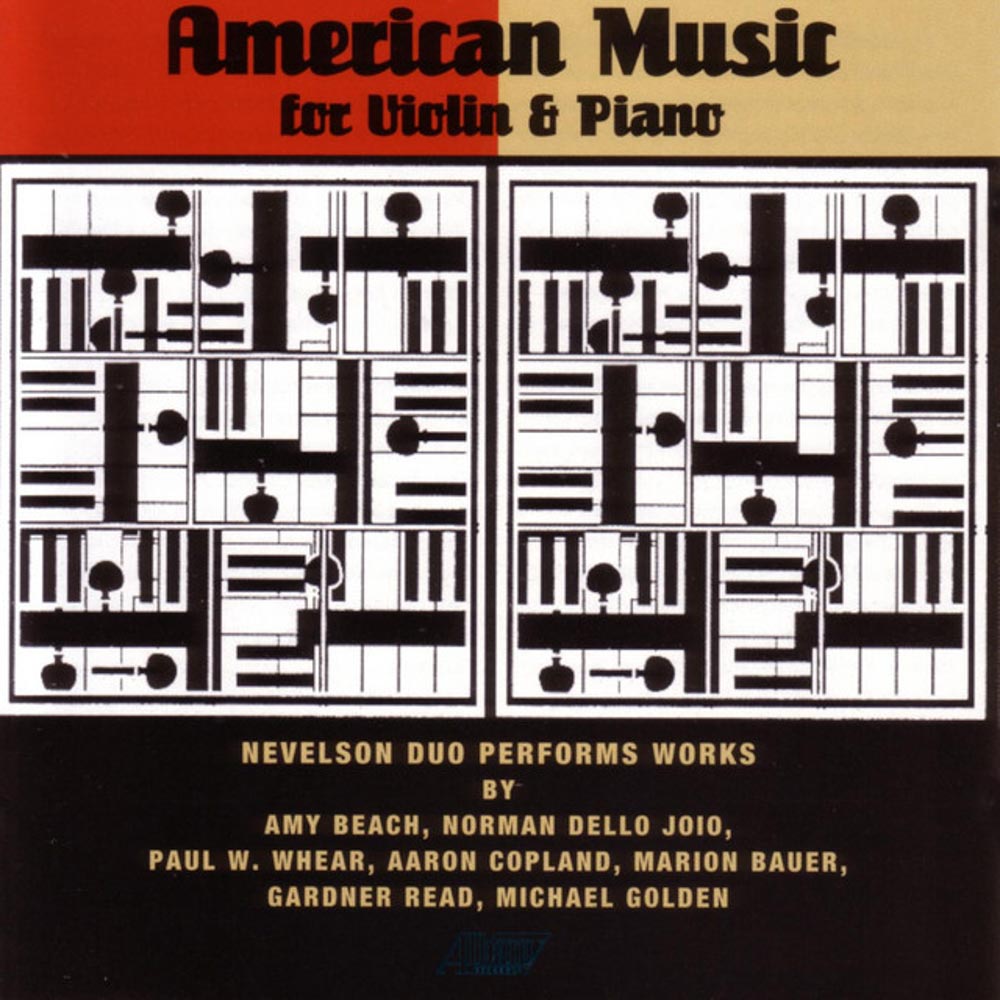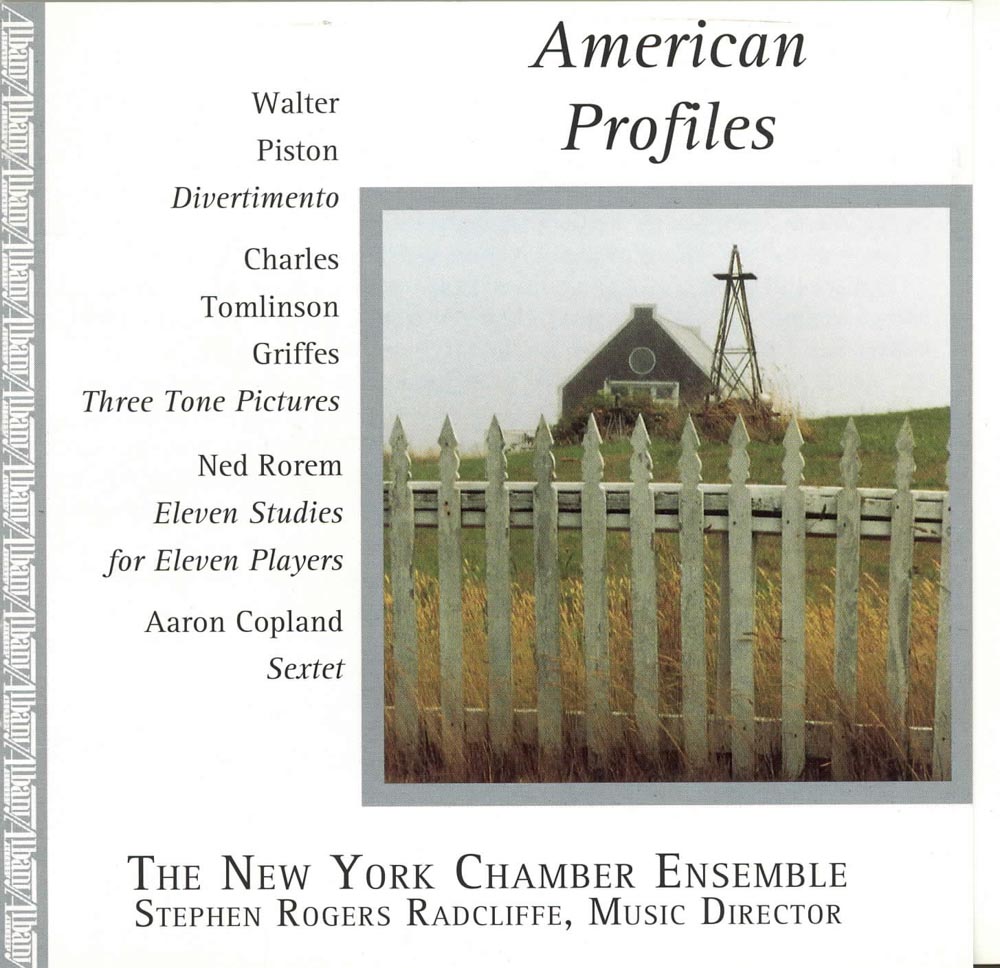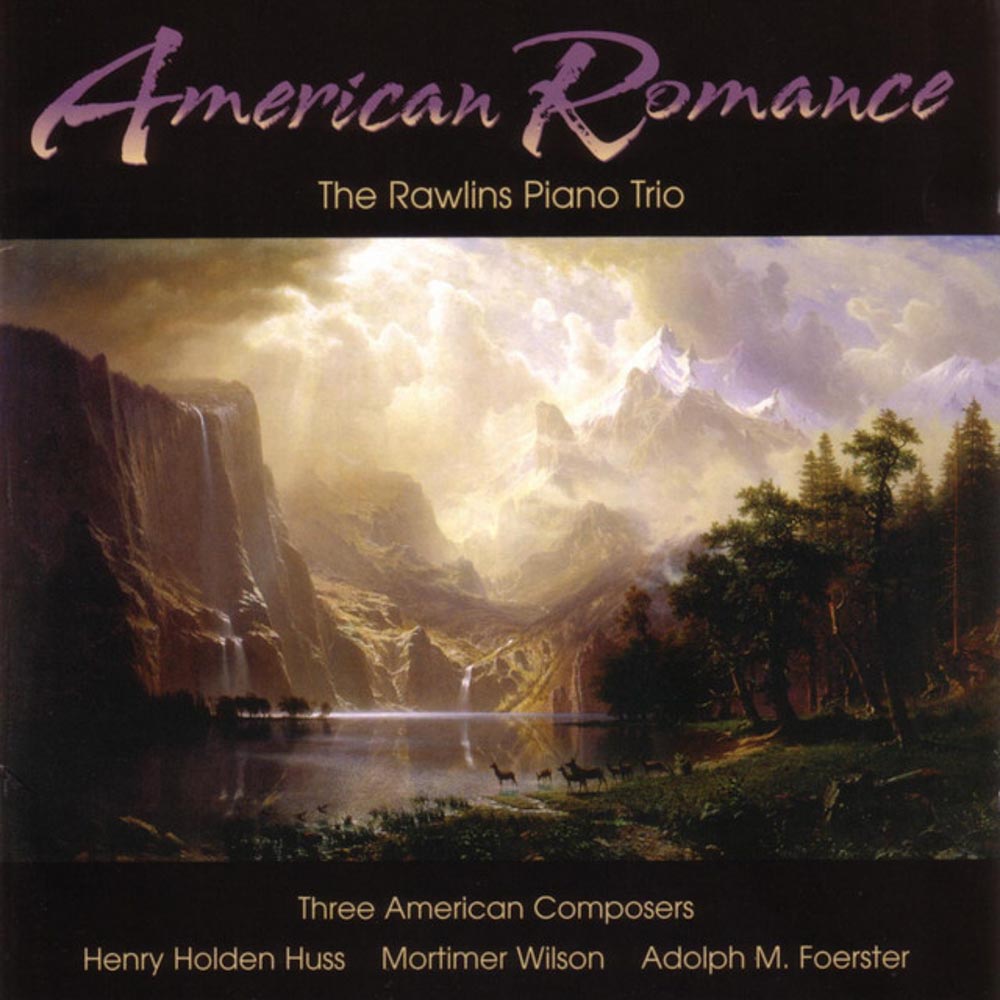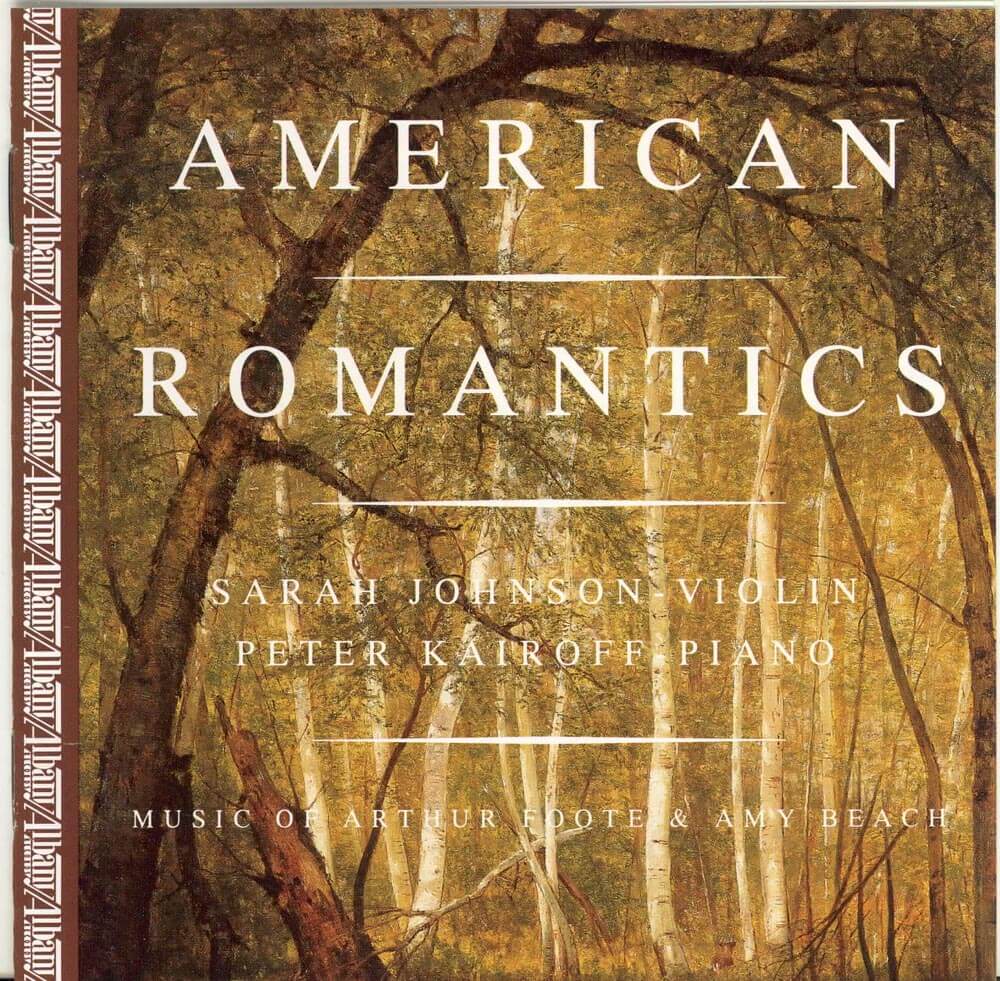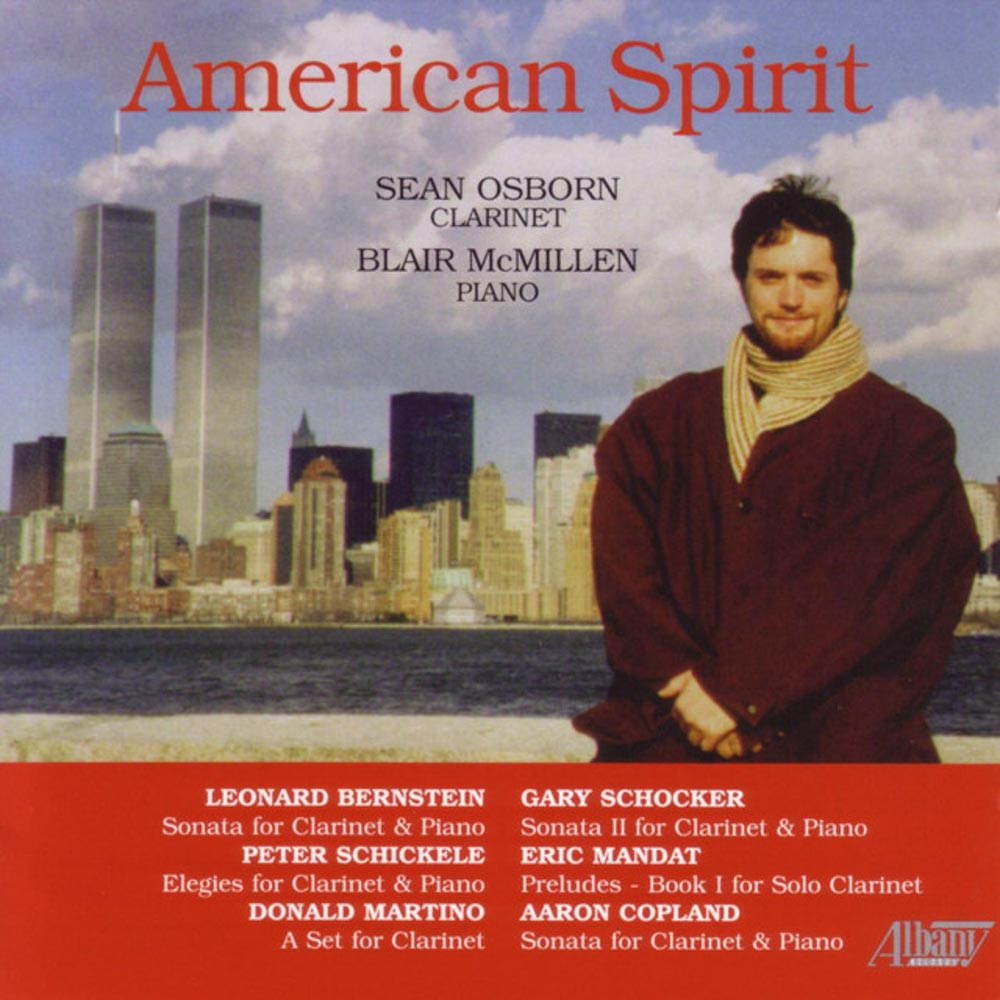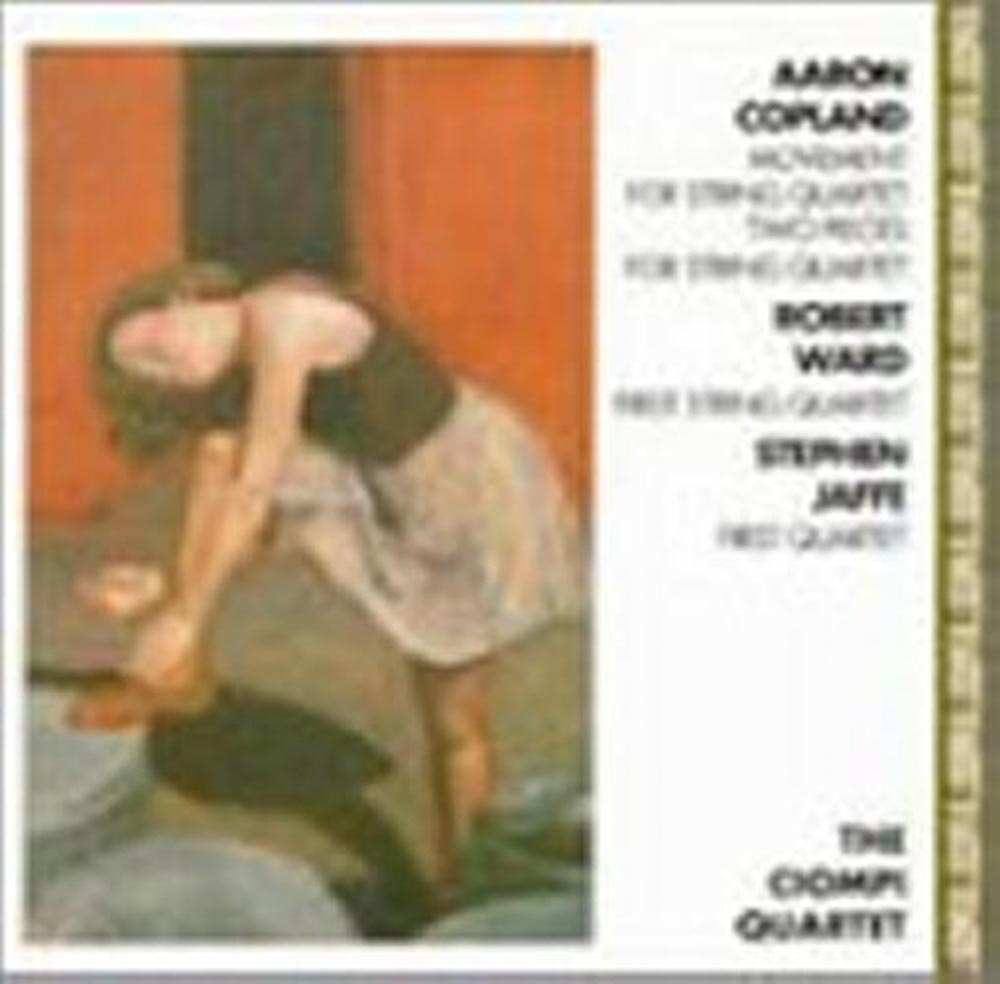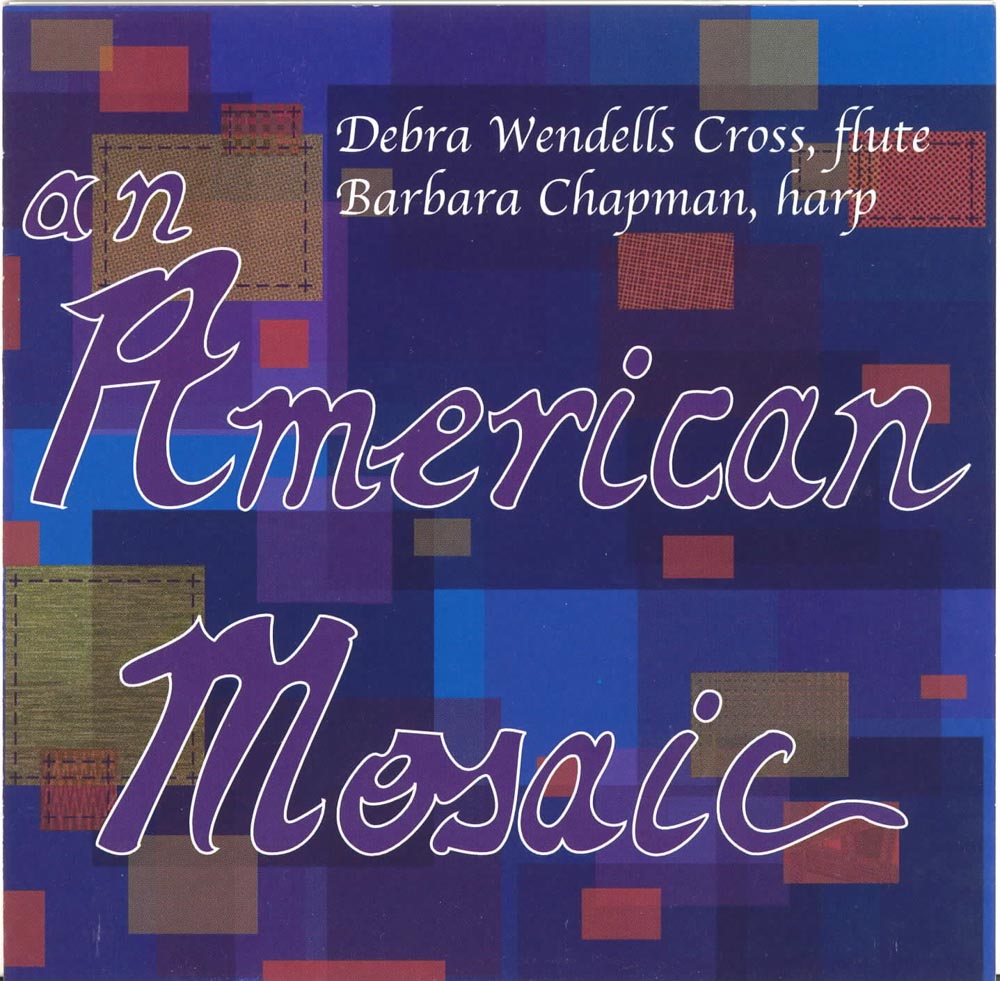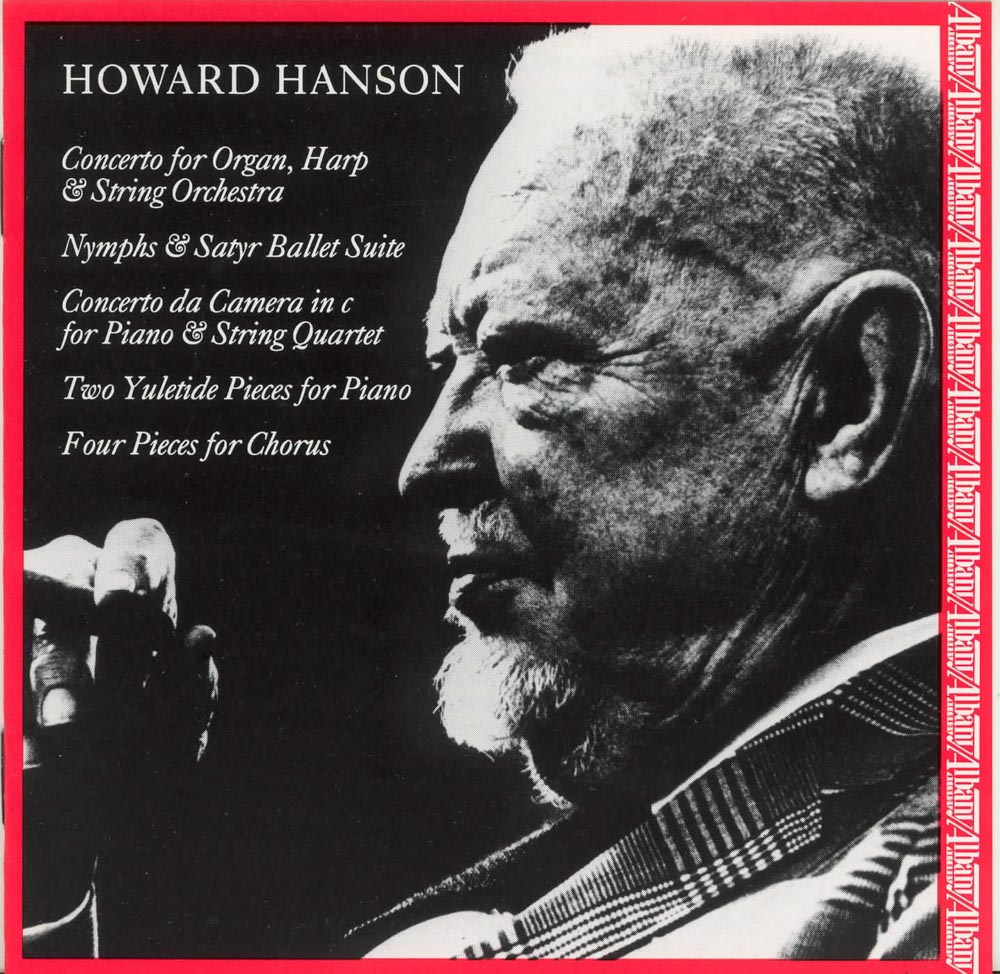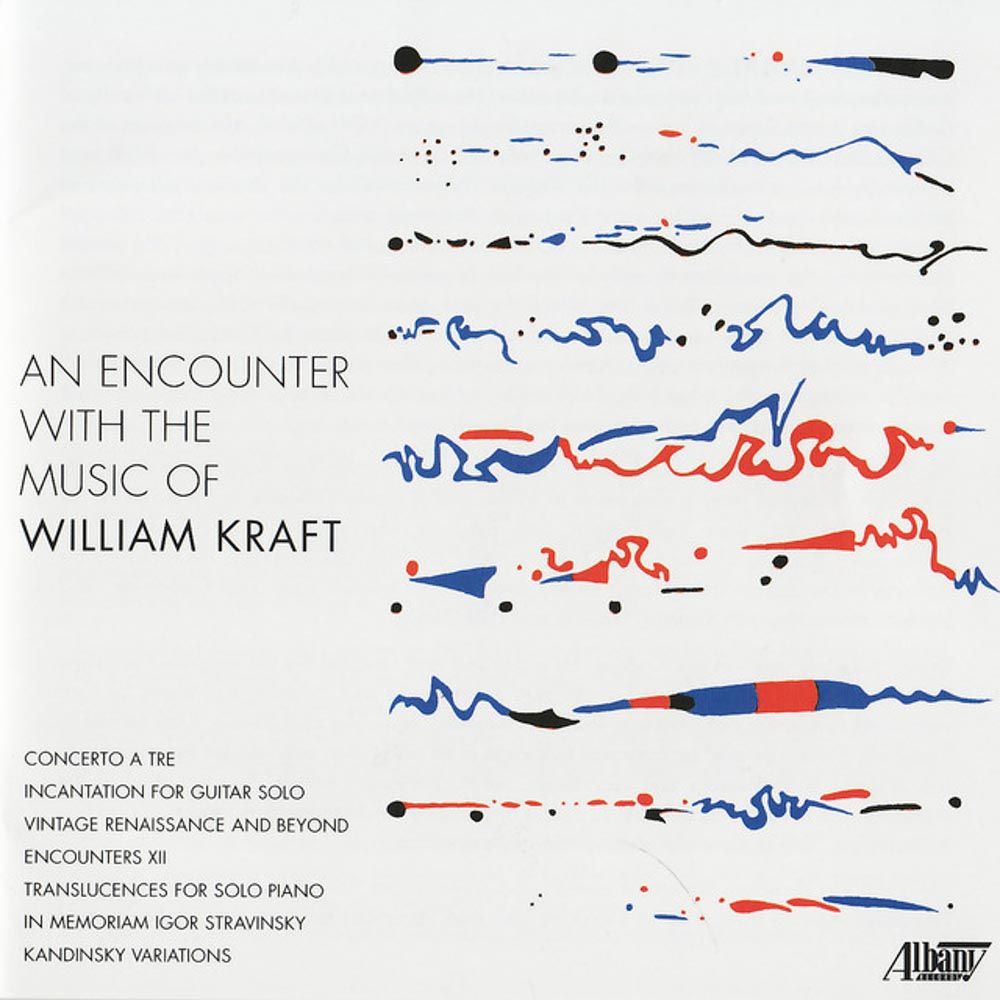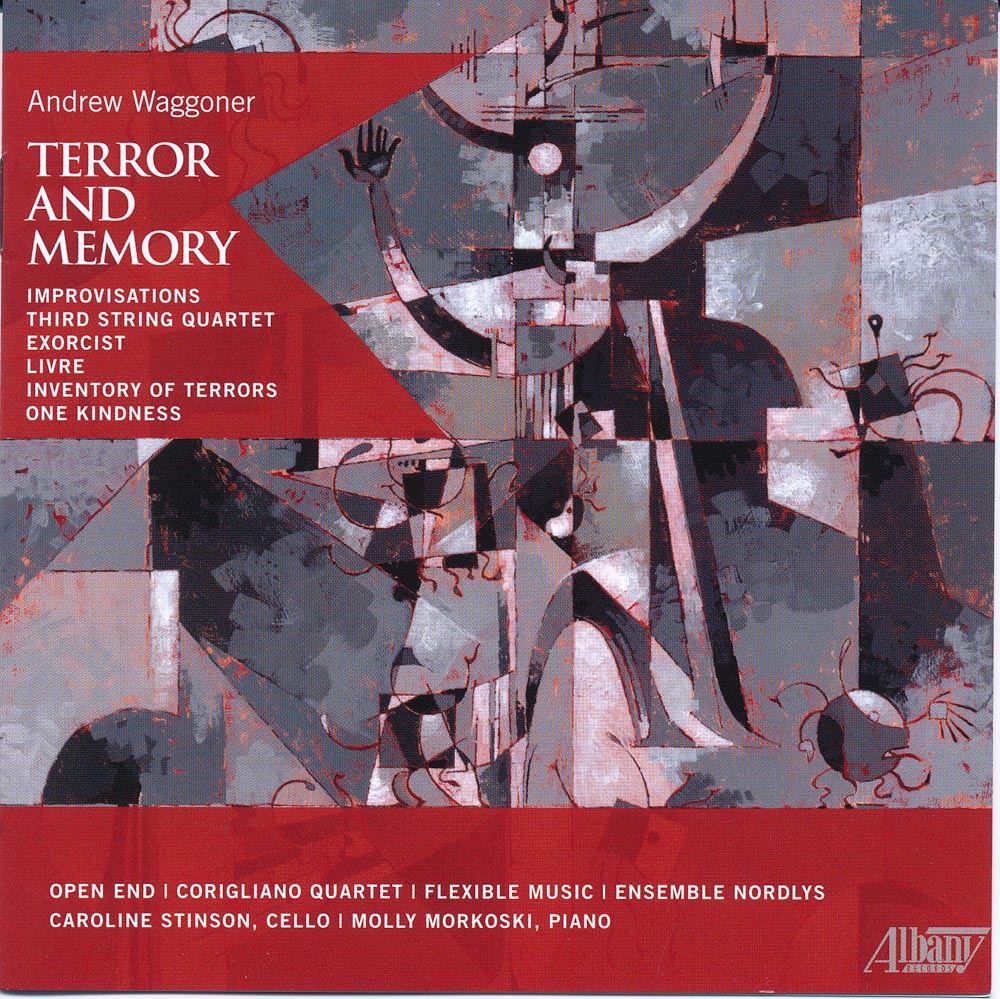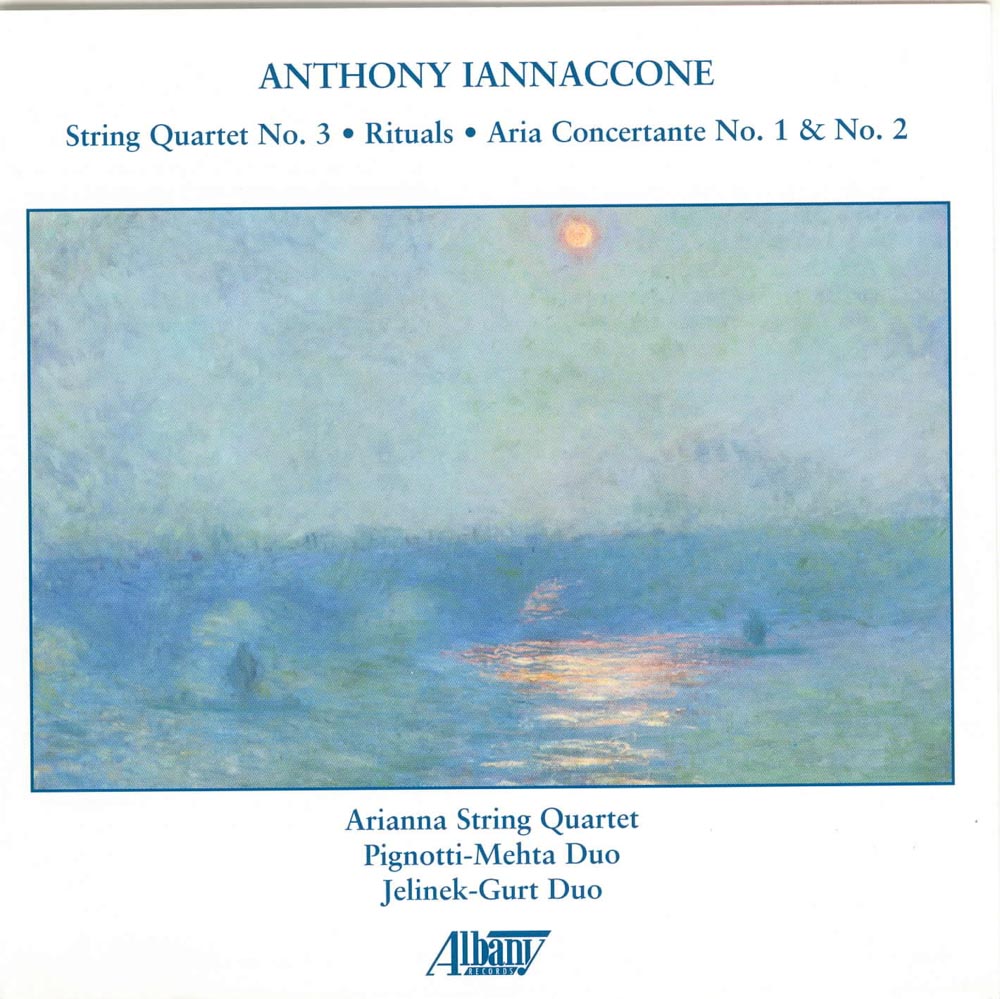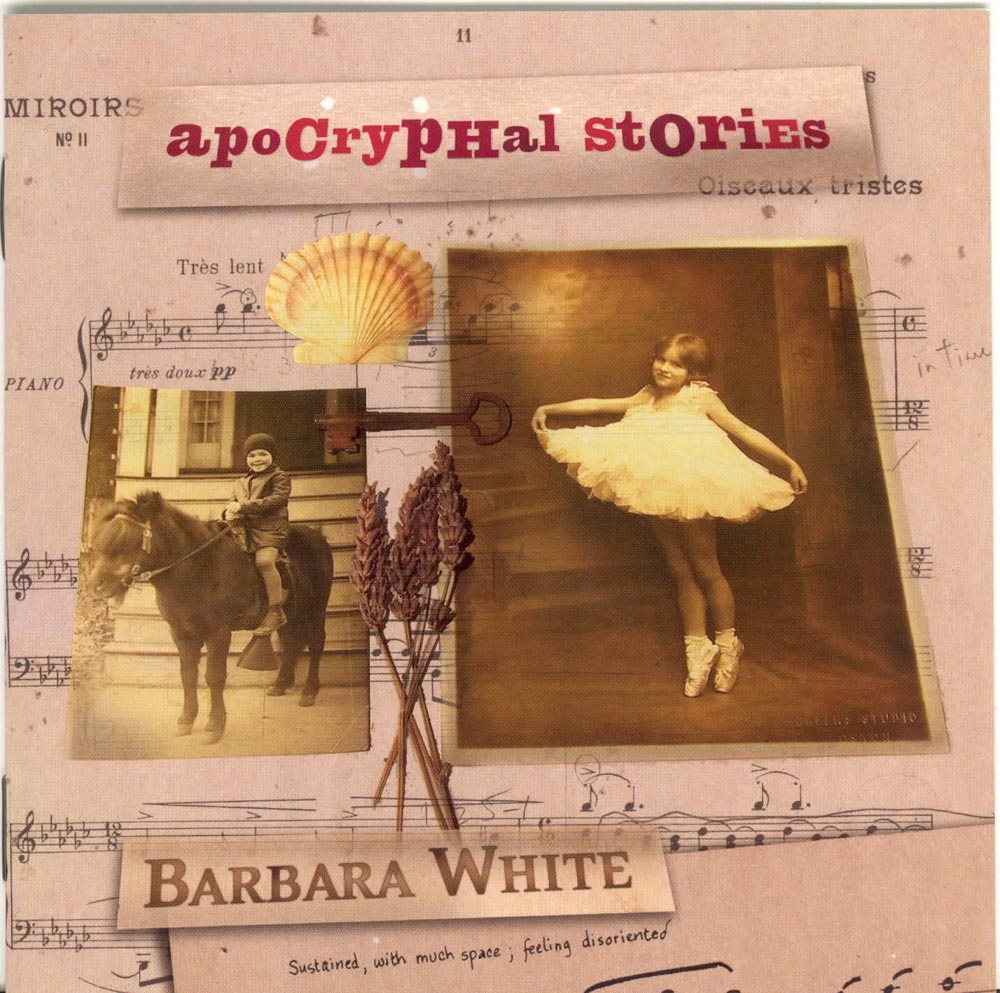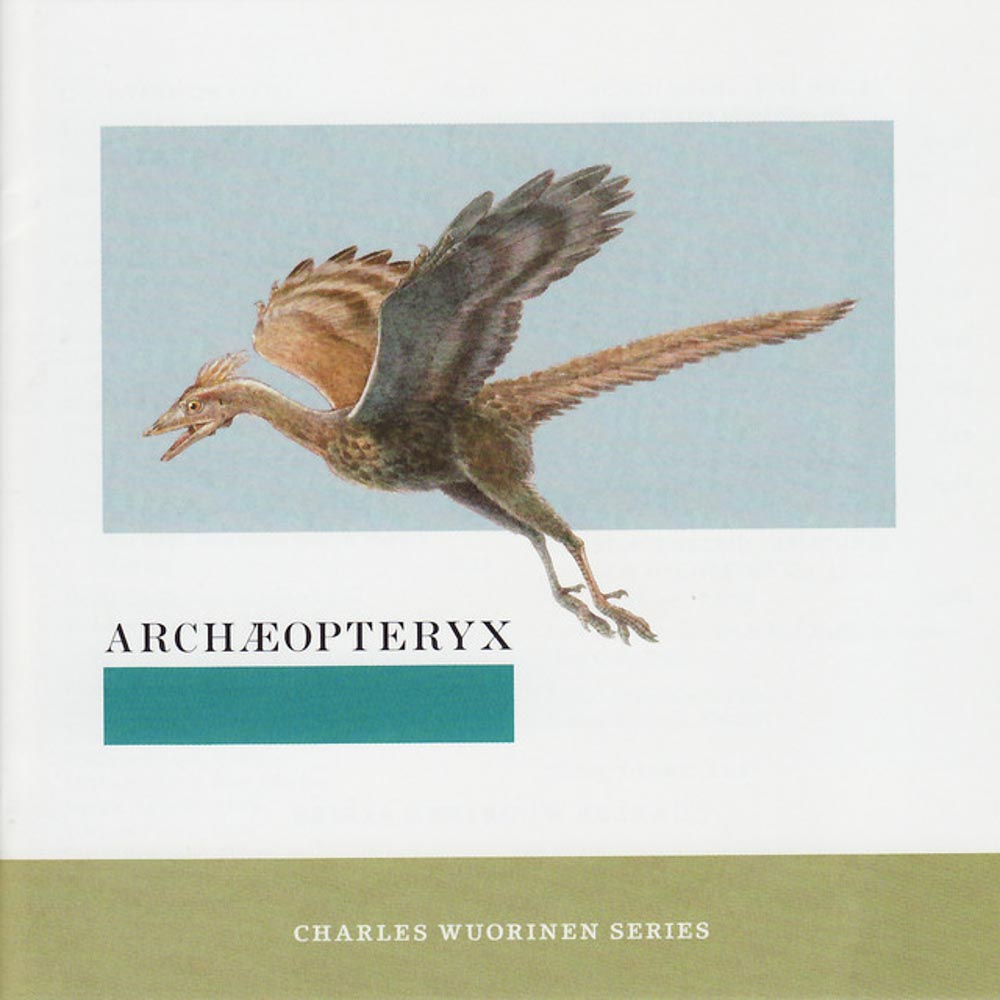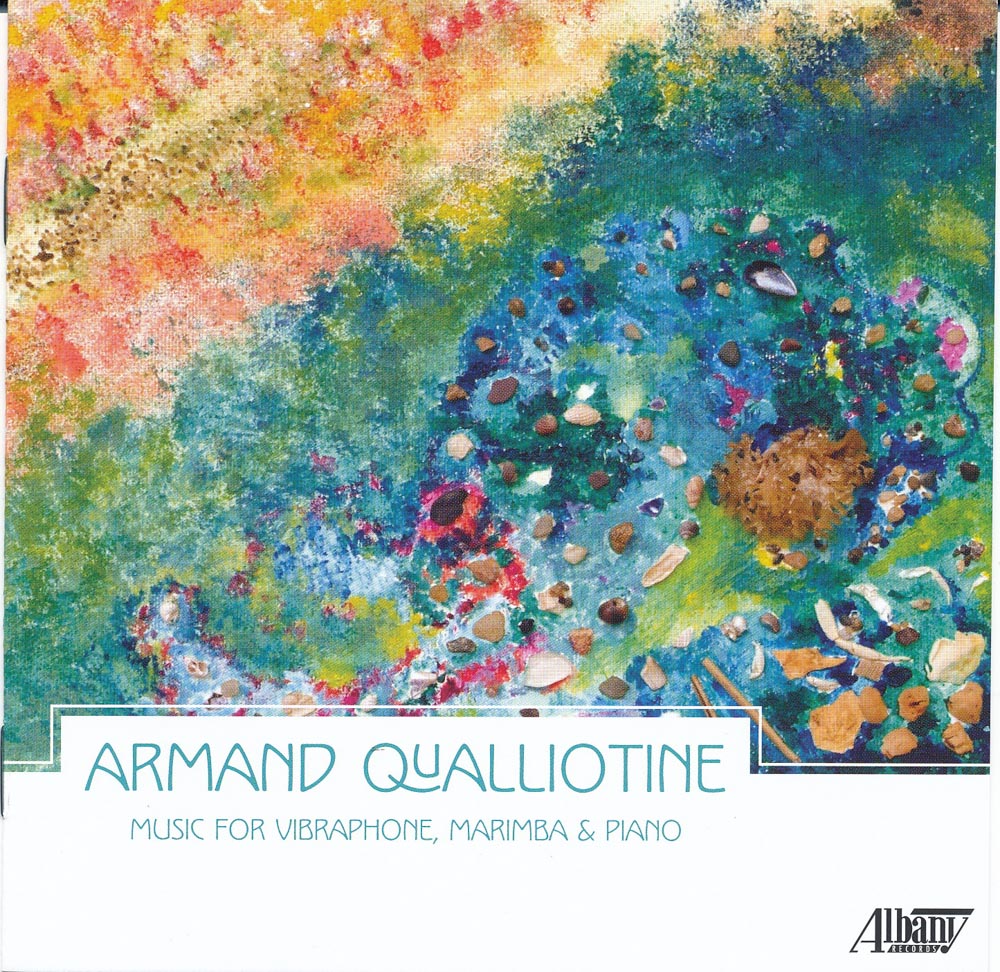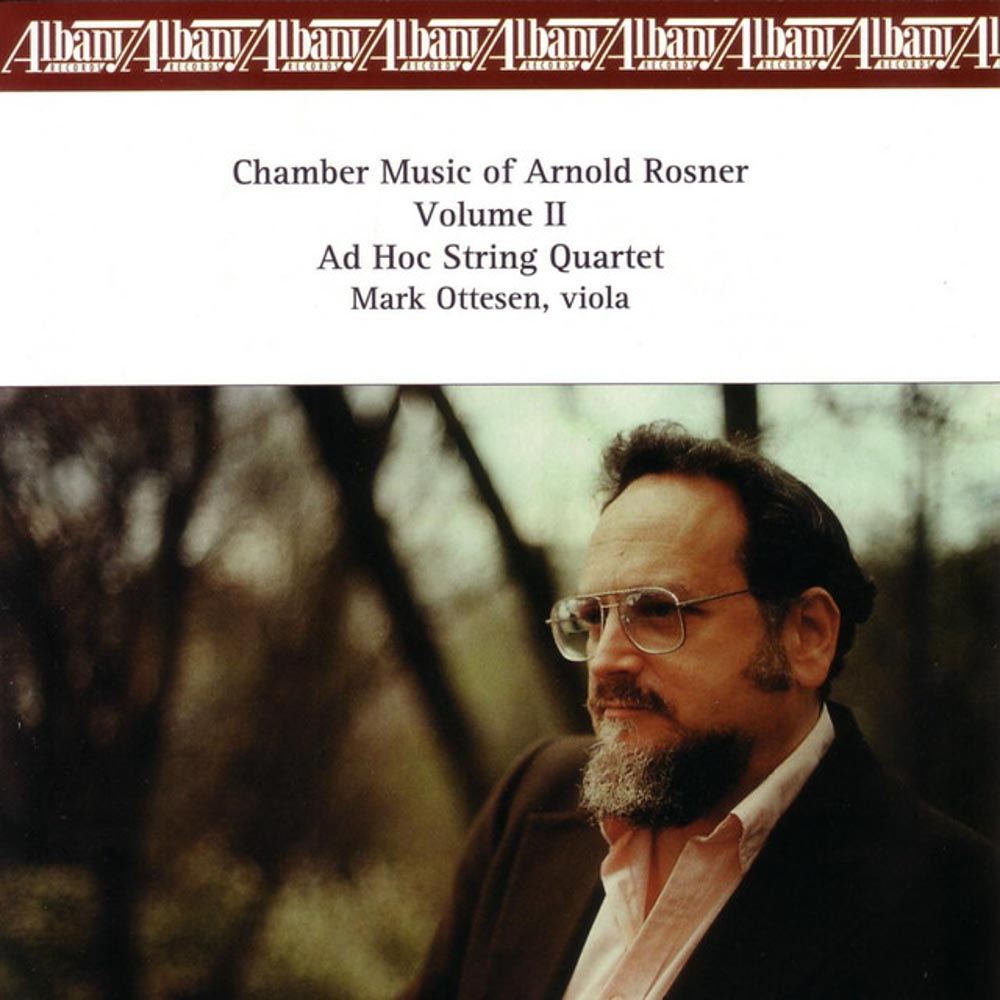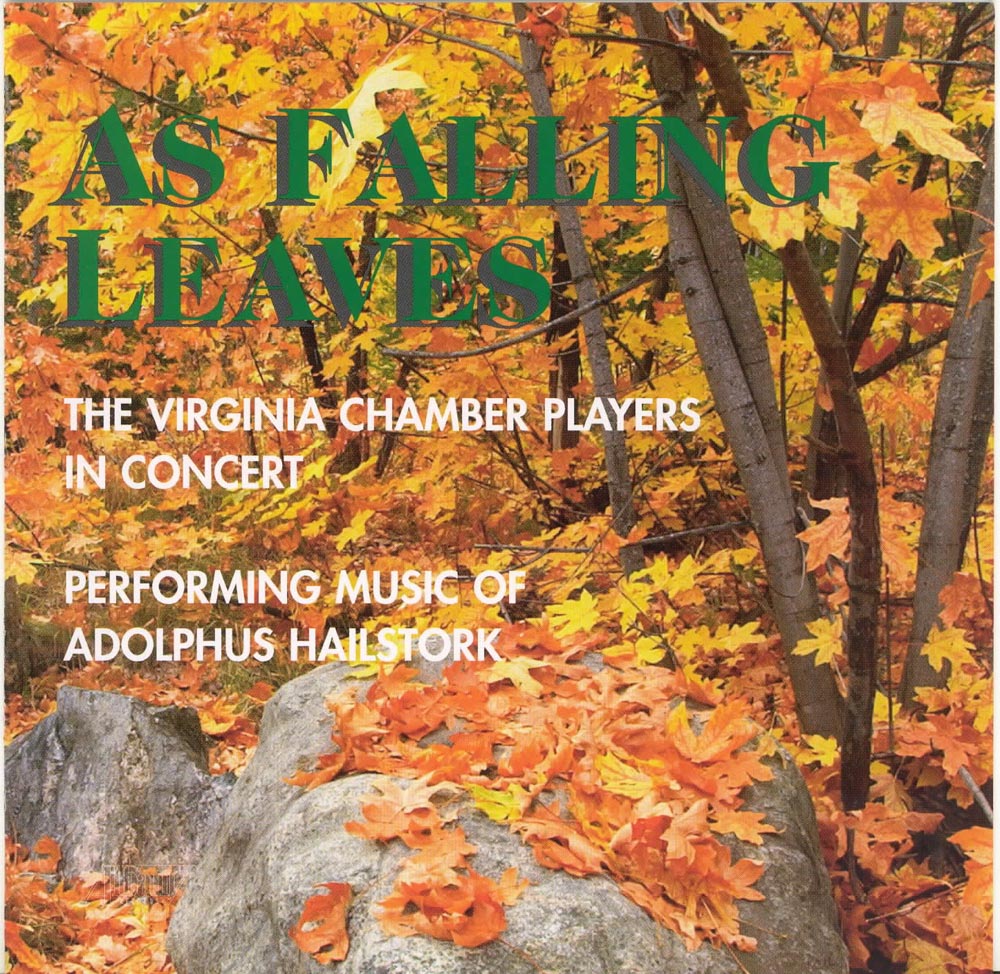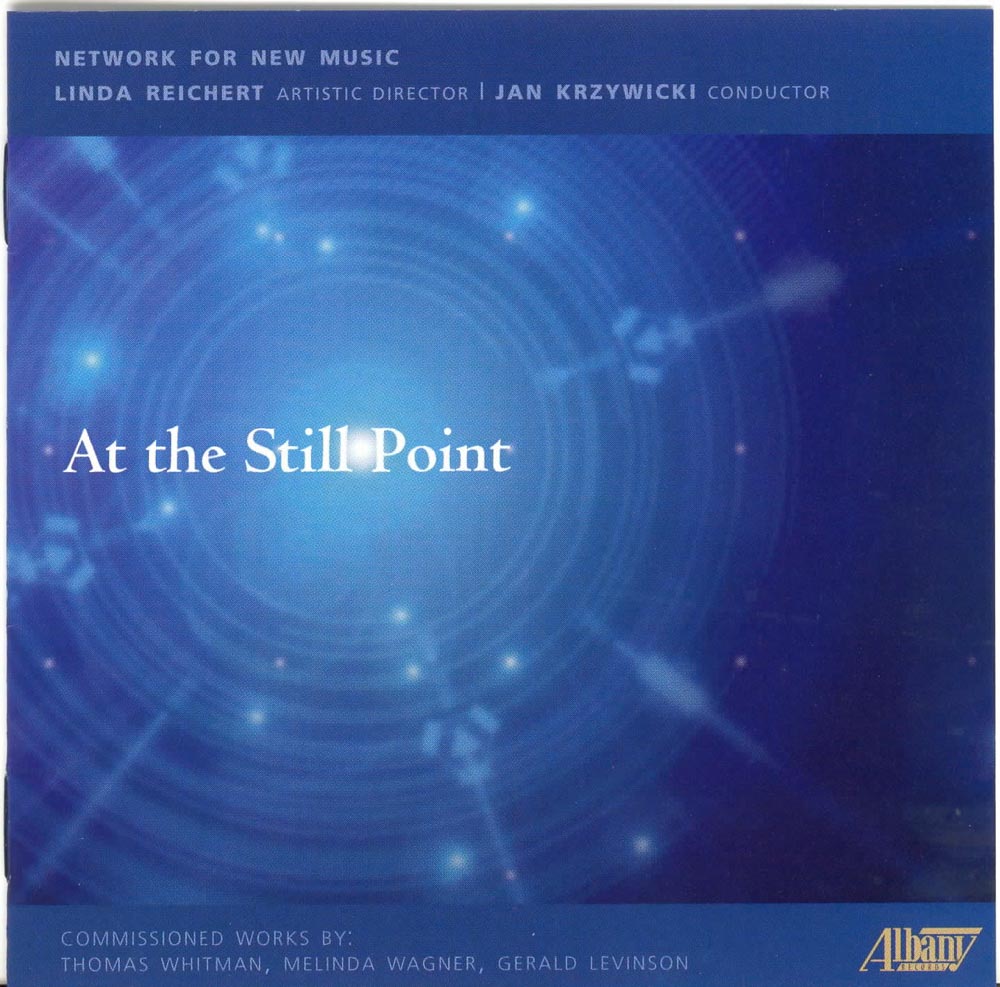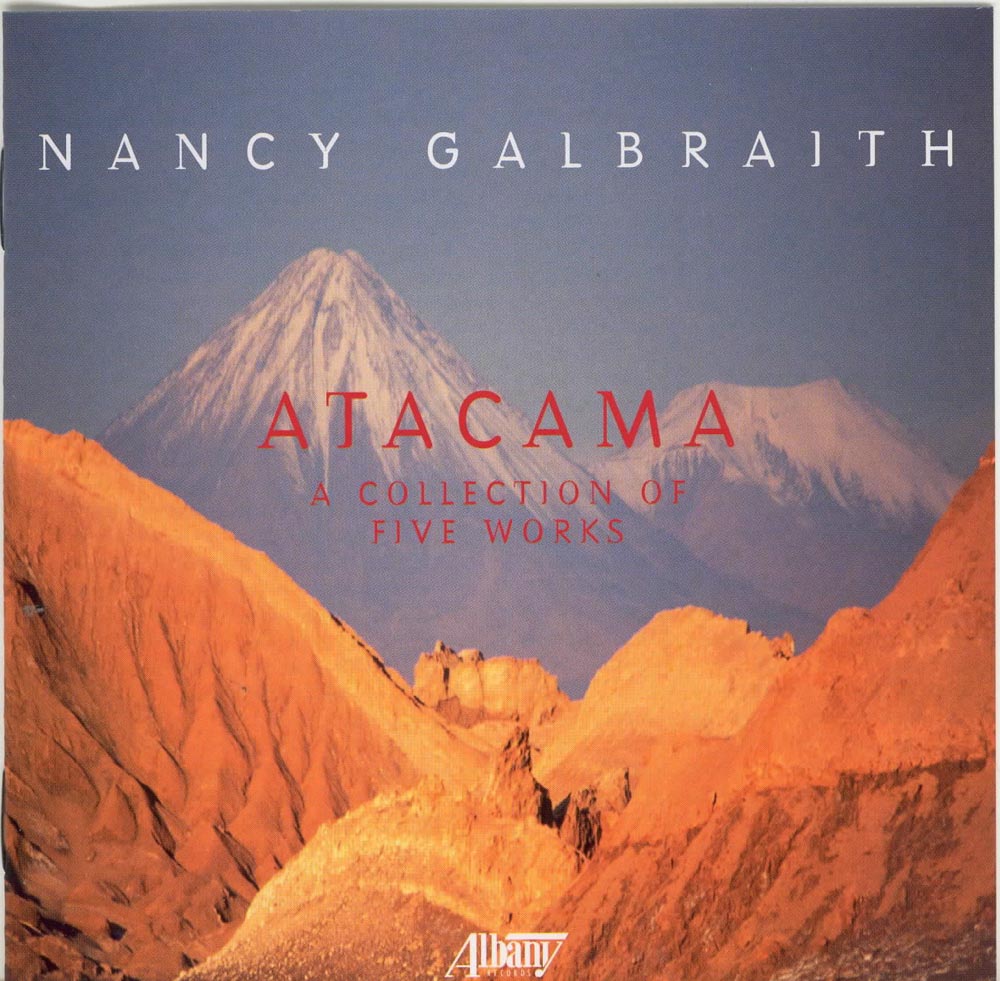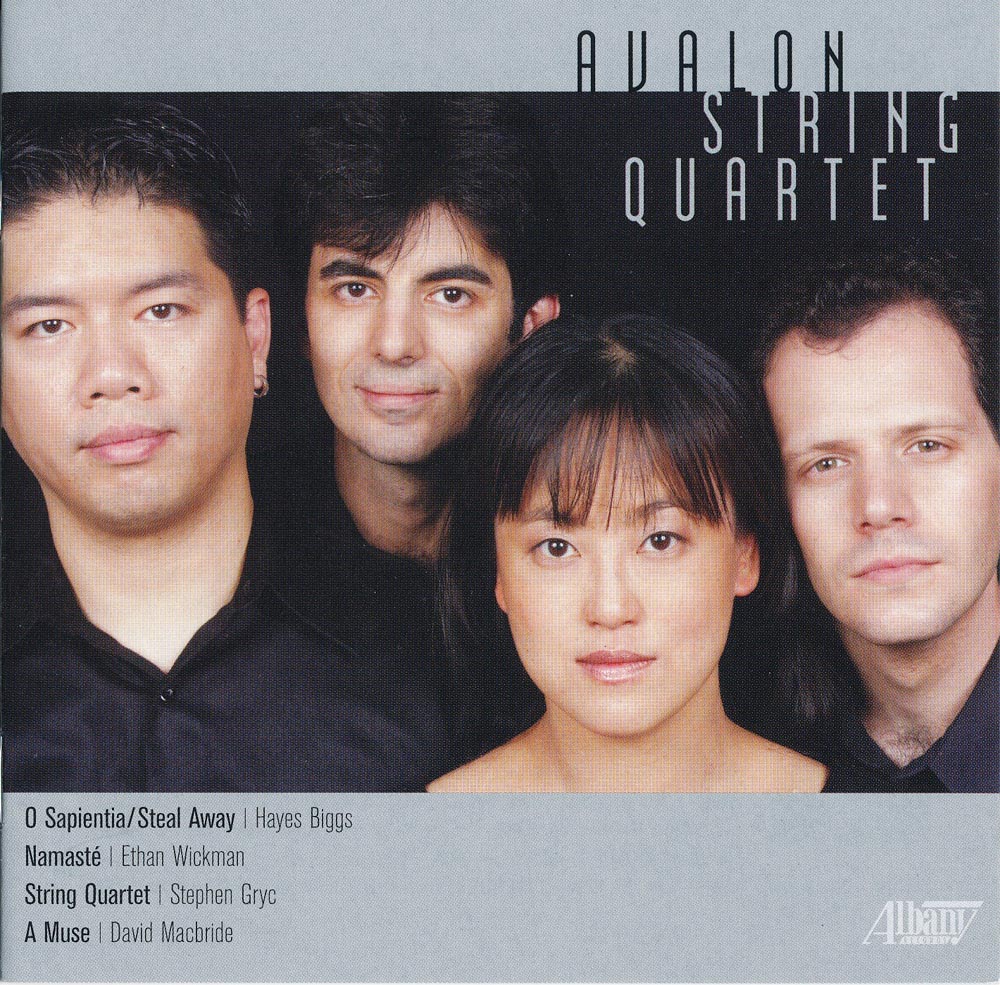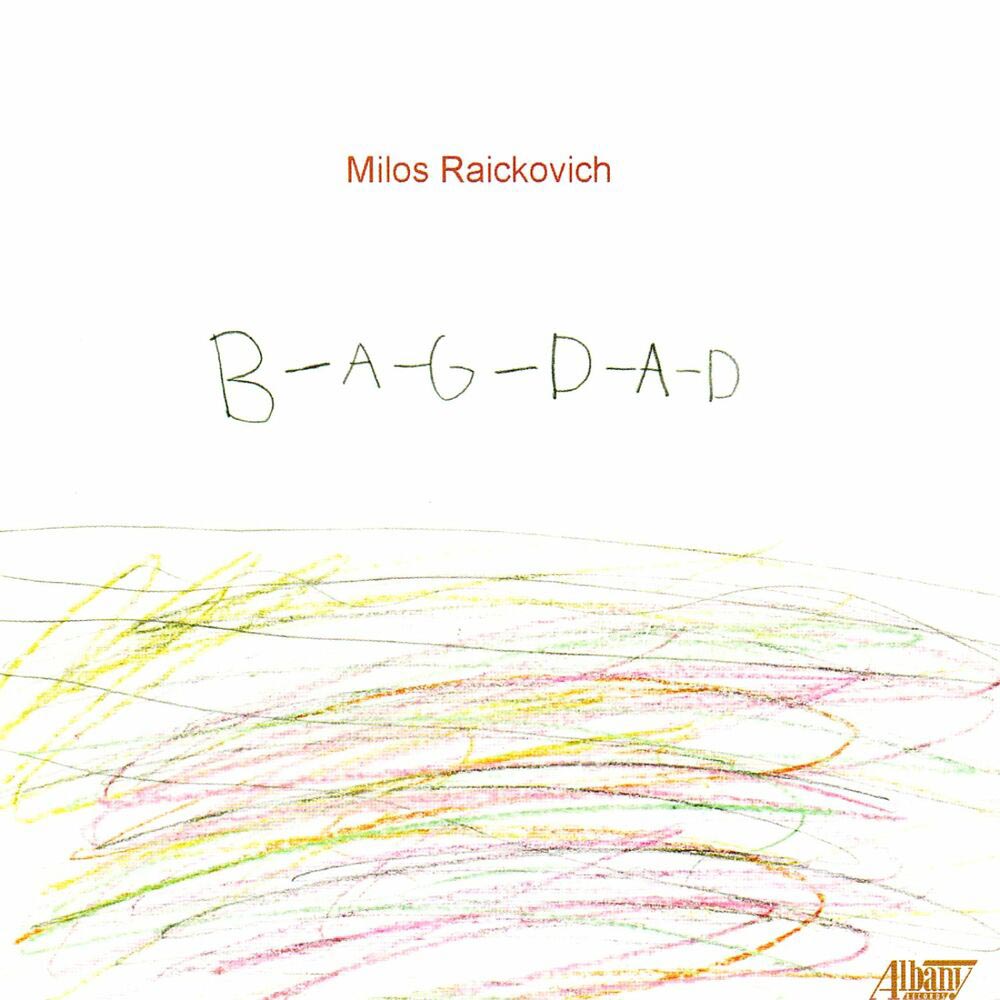Catalog #: TROY1125
Release Date: July 1, 2009ChamberFor their fourth recording on Albany Records, the Rawlins Piano Trio has once again uncovered gems of the American repertoire including three world premiere recordings of the Grasse, Risher and Wilson and a commissioned work from the brilliant young composer Daniel Bernard Roumain. Founded in 1987 the Rawlins Piano Trio performs regularly throughout the United States and abroad. They have formed a reputation as a preeminent interpreter of 19th and early 20th century American music.
Catalog #: TROY1593
Release Date: October 1, 2015ChamberThis disc of American duos for violin and piano represents many years of collaboration between the performers Jennifer Frautschi (violin) and John Blacklow (piano) and their composer-colleagues. Frautschi and Blacklow have always given serious attention to composers of their generation in their concerts and are particularly enthusiastic about fearless composers with undeniably individualistic voices. All five composers represented on this disc have written extensively for chamber music ensembles, but their compositions for violin and piano have not been performed nearly often enough and deserve to be heard more widely. Jennifer Frautschi and John Blacklow, both having achieved distinction in their careers, have been performing together since 1996 when they made their New York recital debut at Carnegie Hall. They have performed in Europe's most celebrated concert venues as well as in major cities around the United States. This is their second recording for Albany Records, the first being a recording of the three Schumann Sonatas for Violin and Piano.
Catalog #: TROY0167
Release Date: September 1, 1995ChamberThe great beauty of this album is the variety of music by fine American composers. From the familiar by Copland and Barber, to the less so by the rest, this is an admirable disc. Robert Muczynski studied with Alexander Tcherepnin at DePaul University. His "Sonata" has been described as an energetic and optimistic work, reflecting the American "can-do" mood of the early 1960s. Leo Kraft's "Fantasy" incorporates some of the "new acquisitions" that were in the air during 1963, including the choice and chance scores of John Cage. About "Hexachords" Joan Tower has written that it is "divided into five sections, which are most easily differentiated by a sense of either going somewhere or staying somewhere." Meyer Kupferman's "Chaconne Sonata" was commissioned by Laurel Ann Maurer and composed especially for her. Only the first movement is cast in the traditional chaconne design. The remaining three movements reflect an ongoing setting of the thematic material drawn from the opening four bar phrase of the chaconne. Laurel Ann Maurer grew up in Seattle where she studied. Later she came to New York where she studied with Samuel Baron, Julius Baker and Jeanne Baxtresser. She has held principal chairs in the National Orchestra of New York, the New York City Symphony, Long Island Chamber Orchestra, Queens Philharmonia and the Chautauqua Festival Orchestra. She is currently principal flute of the Salt Lake Symphony Orchestra and director of American Flute Works.
Catalog #: TROY1427
Release Date: September 1, 2013ChamberThe works featured on this recording are not united by a single topic or style. What they share is that they are extraordinary, yet seldom heard examples of American music for two pianists. Performed by the husband-and-wife piano duo team of Stacy Rodgers and Diane Wang, the ensemble is a perennial favorite of audiences, with their programs offering an intriguing bland of standard four-hand and two-piano repertoire and daring new works by contemporary composers. Stacy Rodgers is on the faculty at the University of Mississippi and a graduate of Southern Methodist University and The University of Texas at Austin. Also on the faculty at the University of Mississippi, Diane Wang is a member of the faculty woodwind quintet and performs both as a pianist and flutist. She holds degrees from Indiana University and The University of Texas at Austin.
Catalog #: TROY0457
Release Date: August 1, 2001ChamberThe harpsichordist Mark Kroll has long been recognized as one of the central figures in the field of historical performance and early keyboard instruments. During a career spanning over 50 years, he has concertized worldwide as a harpsichordist and fortepianist, winning critical acclaim for his virtuosity and expressive playing. His many recordings include solo repertoire, violin and keyboard music with Baroque violinist Carol Lieberman, and world premiere recordings of Hummel's transcriptions of Mozart symphonies. As an educator he has served as Professor and Chair of the Department of Historical Performance at Boston University since 1977, and he is frequently invited to teach as guest professor at music academies such as Wurzburg. This is his first recording of a disc devoted to just contemporary music and it is most welcome. How many remember the wonderful recording of the beautiful Trimble piece on Columbia in their modern American music series? This new performance is just as stunning and most welcome.
Catalog #: TROY0141
Release Date: December 1, 1994ChamberConsidered a magnificent instrument for chamber music since the 18th century, the viola nevertheless had difficulty establishing itself as a solo instrument. Its rich, sandy tone and middle range, indeed the very qualities that make it an ideal chamber music partner, historically deterred composers from placing the viola in the spotlight. It has only been in the 20th century that the viola has come into its own as a solo instrument. This change has been wrought by contemporary composers searching for new timbres to explore, as well as by exceptional performs whose commissions and performances inspired dozens of composers to view the viola as a viable solo instrument. This trend has been especially well-developed in the United States and the four works for viola and piano on this disc exemplify the expressive range of which the viola is capable. Lawrence Wheeler is a professor at the University of Houston School of Music. Principal Violist of the Houston Grand Opera Orchestra, he is former Principal Violist of the Pittsburgh Symphony and has been Co-Principal of the Minnesota Orchestra and guest Principal with the Dallas and Houston Symphonies. A graduate of Juilliard, his teachers have included Walter Trampler and Leonard Mogill.
Catalog #: TROY0652
Release Date: July 1, 2004ChamberFounded in 1989, the Nevelson Duo, named for the American artist Louise Nevelson, is committed to performing works by American composers, as well as both standard and less-familiar repertoire for violin and piano. Elizabeth Reed Smith is Professor of violin, viola, and chamber music at Marshall University. Since earning degrees in violin performance from Yale and Eastman, Dr. Smith has received numerous awards. She has studied violin with Charles Castleman, Szymon Goldberg and Burton Kaplan. She has spent five summers as concertmaster of the Spoleto Festival Orchestra. With degrees from the University of Colorado at Boulder and the University of Missouri at Kansas City, Leslie Petteys is Professor of piano and graduate studies at Marshall University. She has also taught at Stephens College and served as Assistant Director of the Institute for Studies in American Music at University of Kansas City - Missouri. She has studied piano with David Burge and performed in master classes for Gilbert Kalish, Byron Janis, and Elly Ameling. She has appeared as a solo recitalist and chamber musician throughout the eastern and Midwestern states. The Nevelson Duo has performed extensively in the Mid-Atlantic states and has been featured in recitals at the National Museum of Women in the Arts in Washington, D.C. and the Longy School of Music in Boston. Bidder to Better was commissioned by the Nevelson Duo as part of the national series of works sponsored by Meet The Composer/Arts Endowment Commissioning Music/USA.
Catalog #: TROY0175
Release Date: September 1, 1995ChamberWalter Piston's "Divertimento" was commissioned by the International Society for Contemporary Music and given its first performance by an ensemble of New York players at Columbia University in May, 1946. The group was conducted by Dmitri Mitropoulos. "The Three Tone Pictures" of Charles Tomlinson Griffes were originally composed for solo piano in 1915. At the request of Caroline Beebe, the pianist and director of the New York Chamber Music Society, Griffes prepared a chamber ensemble version of the "Tone Pictures." This version was premiered in Greenwich, Connecticut, in June 1920, less than two months after the composer's death. Ned Rorem composed his "Studies" in 1959, at the request of Cameron Baird, the head of the Music Department at Buffalo University. He had hired Rorem to teach a class in composition, give some public lectures and compose a work for chamber ensemble. Unfortunately, Baird died before the premiere of the work, which the composer conducted at the University in May, 1960. Copland's "Sextet" is actually a chamber version of his "Short Symphony." The original work was composed between 1931 and 19933. The chamber version, "Sextet," was composed in 1938 and given its first performance at Town Hall in New York by a group of Juilliard graduate students in February 1939.
Catalog #: TROY0692
Release Date: August 1, 2004ChamberHenry Holden Huss was born in Newark, New Jersey, and grew up in New York City, where his family moved when he was two. His father had emigrated from Germany and became a successful organist and piano teacher in this country. Young Huss began to study music with his father, then others in this country, finally traveling to Munich to study at the Royal Conservatory. He studied piano, organ and composition with two other American students who began the same time he did: Horatio Parker and Arthur Whiting. All three excelled. Upon his return to the United States, Huss received some recognition with his Piano Concerto (his graduation piece from Munich). He performed it both with the Boston Symphony and the New York Philharmonic. Daniel Gregory Mason related to Huss in 1892, that John Knowles Paine, the dean of American composers with whom Mason was studying at the time, considered Huss "the best of the young generation of American composers". Many shared this opinion. But like many other American composers of the time, Huss found it very difficult to get his music performed and published. His Trio in d minor, Op. 23, was composed in 1886 and dedicated to his teacher Joseph Rheinberger. Mortimer Wilson was born in Charlton, Iowa. He studied organ, violin and composition with Frederick Grant Gleason at the Chicago Musical College. He then studied in Leipzig with Max Reger. John Tasker Howard (the great observer of early American composers) wrote of his rigorously trained former teacher that he "...could toss complicated counterpoint from his pen as easily as he could talk to his friends". Upon his return to this country in 1911, he taught at the Atlanta Conservatory and conducted the Atlanta Philharmonic Orchestra. In 1916, he moved to Brenau College in Gainesville, Georgia. By 1918, he had taken a job as consulting editor for the National Academy of Music in New York City, where he remained until his death. Today, his works are mostly in manuscript and includes five symphonies and a great deal of chamber music. The suite, From My Youth, Op. 5 was published in 1911 and premiered by the Sitting Trio. Adolf Martin Foerster was born in Pittsburgh. He began with piano lessons from his mother and then pursued music in the public schools which had just incorporated Lowell Mason's ideas about music education into its public schools. He also then went to Leipzig to complete his education. Upon his return to America he spent one year teaching in Ft. Wayne, Indiana, before he returned to Pittsburgh, where he soon became one of the musical leaders of the community. Though mainly known as a songwriter, Foerster's many compositions include numerous suites, overtures, and festival marches for orchestra; a violin concerto, two other piano trios; a piano quartet and pieces for violin and piano. His Trio Serenade was composed in 1907 and is a lush romantic work.
Catalog #: TROY0150
Release Date: February 1, 1995ChamberOne of the major commitments of Albany Records is to the music of America. Within this field one of our very specialized areas of interest is unknown music from our country's Romantic Era. This new recording of music by Arthur Foote (1853-1937) and Amy Beach (1867-1944) is a perfect example of what we are all about; two fine young American performers playing music which is so very deserving of being heard, especially by larger audiences. Both Foote and Beach have composed music that is very well written and immediately appealing. Violinist Sarah Johnson also appears on Albany Records performing Robert Ward's Violin Concerto with the Winston-Salem Symphony (see TROY126).
Catalog #: TROY0619
Release Date: December 1, 2003ChamberWhat is the American Spirit? How can a country of such diversity and individualism have a national spirit? Perhaps the diversity and individualism ARE the American Spirit. That is certainly true in American music: everything from European influenced classicism to home-grown fusions of jazz or rock. This CD represents a great many different American styles spanning the twentieth century, from two of her greatest early masters, through mid-century serialism and pop-influence, to late century experimentation and codification. Sean Osborn has traveled the US and Europe as soloist and traveled the world during his eleven years with the Metropolitan Opera Orchestra. He has also performed as principal clarinet with the New York Philharmonic, Pittsburgh Symphony, the Seattle Symphony and the American Symphony Orchestra. The New York Times dubbed him "...an excellent clarinetist," and the Boston Globe called him "...a miracle." Making his recital debut at the Kennedy Center at the age of 17, Sean is a top prize winner in both the ARTS Competition and the International Clarinet Society Competition, and in 1984 was named a Presidential Scholar in the Arts. He studied at the Eastman School and the Curtis Institute of Music. He is also a respected teacher and has given numerous master classes at such institutions as Rice University, Baylor University, the University of Puget Sound and two at the Manhattan School of Music. He is also an award winning composer.
Catalog #: TROY0073
Release Date: March 1, 1993ChamberThree generations of fine American composers are represented on this disc. Copland's "Movements" and "Two Pieces" are his only works for string quartet as is the "First Quartet" of the great Pulitzer Prize winning composer, Robert Ward. About this work he has written: "By the time of the composition of the "First String Quartet," I had reached the conclusion that two cardinal principles prevailed in those works, new or old, which makes a lasting impression on the listener. The first is that the work must be based on provocative musical ideas that are clearly stated and, in the case of longer works, are stimulating to the composer's creative powers. The second is that an aesthetically satisfying work unfolds in sounds which produce waves of alternating tension and relaxation in the listeners, commanding their full attention. I had arrived at these conclusions by analyzing many works from many musical periods." This string quartet is an important work in Dr. Ward's output, appealing and imaginative. Stephen Jaffe was born in Washington, DC. He was trained in composition at the University of Pennsylvania and the Conservatoire de Musique in Geneva, Switzerland. To date, this is the only string quartet that Mr. Jaffe has composed. In 1991, it was one of four winners in the Kennedy Center Freidheim Awards for Excellence in Chamber Music Composition. Currently he serves on the music faculty of Duke University. This is the world premiere recording of the quartet.
Catalog #: TROY0419
Release Date: November 1, 2000ChamberDebra Wendells Cross holds the position of Principal Flute in the Virginia Symphony. She also serves on the faculties of the College of William and Mary and Old Dominion University, and during the summer is Principal Flutist of the Eastern Music Festival in Greensboro, North Carolina. The Seattle native graduated with honors from the New England Conservatory. She also studied in Paris with Michel Debost. Barbara Chapman holds the position of Principal Harp for the Virginia Symphony and the Virginia Opera. She has also performed at the Glimmerglass Opera Festival in New York and continues to perform annually at the Virginia Waterfront International Arts Festival.
Catalog #: TROY0129
Release Date: September 1, 1994ChamberHoward Hanson (1896-1981) was a distinguished American composer, educator and preeminent advocate of American music. He belonged to that select group of American composers born in the last decade of the nineteenth century - Walter Piston, Roger Sessions, Randall Thompson, Roy Harris, Virgil Thomson and Aaron Copland - who personified the emergence of American classical music as a distinctly national, as opposed to European, cultural force to be taken seriously. He was the leading practitioner of American musical Romanticism, much in the tradition of Jean Sibelius, Edvard Grieg and Carl Nielsen in Scandinavia. Hanson dedicated his professional life to the encouragement, creation and preservation of beauty in music, believing it to be an art form possessing unique power to ennoble both performer and listener, and, by extension, mankind. Throughout his career, Hanson never departed from his cherished ideals of beauty, clarity and simplicity of utterance and his conviction that musicians and audiences would respond openly to each other on this basis. He abhorred ugliness in music, dismissed as worthless intellectual abstraction for its own sake, and fought what he perceived to be the growing alienation between composer and audience. A lifetime of composition reflects this conviction, as did his lengthy tenure as a teacher and administrator.
Catalog #: TROY0981
Release Date: February 1, 2008ChamberBorn in Chicago, William Kraft has had a long and active career as a composer, conductor, timpanist/percussionist and teacher. He is Professor Emeritus at the University of California, Santa Barbara, where he served for 11 years (1991-2002) as Chairman of the Composition Department and Corwin Professor of Music Composition. He is of that generation of American composers who came to prominence starting in the late 1940s and throughout the 1950s whose music is characterized by a distinct brashness, tinged with the energy of jazz and a definite sense of the dramatic. As an avid percussionist, many of the works which first brought him fame spotlight that part of the orchestra, and as director of the Los Angeles Percussion Ensemble, he premiered many now important works. This diverse collection, ranging from solo to orchestral works, exemplifies the wonderful range of this dynamic American composer.
Catalog #: TROY1581
Release Date: August 1, 2015ChamberThe Museaux Trio (Sydney Carlson, flute; Denise Fujikawa, harp; Brian Quincey, viola) is an outgrowth of Debussy's creation of a work for flute, viola, and harp, which has inspired composers ever since. Debussy was captivated by Japanese culture and incorporated Asian influences into his music. Toru Takemitsu credited the music of Debussy as his most important western influence. Embracing the juxtaposition of these two composers, the Museaux Trio takes it's name from a 12th century Zen Monk, Muso Soseki, who designed the legendary moss garden of Kyoto. The name Muso means Dream Window in Japanese. For their debut recording, the Museaux Trio performs Debussy's classic work for this ensemble; Toru Takemitsu's work, And Then I Knew 'Twas Wind, which pays homage to Debussy's Sonate; and finally, a commissioned work by Karim Al-Zand, inspired by the captivating illustrations of biologist and naturalist Ernst Haeckel.
Catalog #: TROY1307
Release Date: November 1, 2011ChamberComposer Andrew Waggoner notes that these are five recent pieces that grew somehow out of the narrow space in which experience is transformed into history. Time, memory, the spell of love and the long-sounding echoes of terror inform each of these works, which while stylistically varied, share a common set of musical and emotional concerns. Bookending these pieces are two group improvisations by Open End. They frame and comment on the works they enclose. Born in 1960 in New Orleans, Andrew Waggoner studied at Eastman and Cornell. He has been commissioned by the Los Angeles Philharmonic, the Academy of St. Martin's-in-the-Fields and the Saint Louis Symphony, among others. He is the recipient of an Academy Award from the American Academy of Arts and Letters and the Roger Sessions Prize. He is Composer-in-Residence at the Setnor School of Music of Syracuse University and a co-founder of the new music ensemble Open End.
Catalog #: TROY1518
Release Date: October 1, 2014ChamberSix pieces of chamber music by Anna Weesner (one solo, two duos, two trios, and one large-spirited piece scored for six musicians) make up this recording. The works were composed over a span of 10 years between 1999 and 2008. Anna Weesner is on the faculty of the University of Pennsylvania. She is the recipient of a Guggenheim Fellowship, an Academy Award from the American Academy of Arts and Letters and a Pew Fellowship in the Arts. Described as animated and full of surprising turns, her music has been performed by the leading contemporary music ensembles.
Catalog #: TROY1712
Release Date: April 1, 2018ChamberFormed in 2009, the Anglo-American Duo Timothy Schwarz, violin; Jane Beament, piano) has evolved into a prominent ensemble that regularly tours in the United States and Europe. Praised for its energetic and sophisticated performances, the Anglo-American Duo specializes in music from the U.S. and Britain. For their first commercial recording, they perform music by British composer David Osbon. Osbon's music has been performed, broadcast and recorded around the world. The recipient of numerous awards, Osbon studied at the University of Pennsylvania. Currently he is on the faculty at the London College of Music.
Catalog #: TROY1144
Release Date: October 1, 2009ChamberHighlighting this recording is the chamber opera, The Birth of Something on a libretto by Will Eno. Commissioned by Da Camera of Houston, The Birth of Something represents an important, elegant, and highly personal contribution to the genre. An associate professor of composition at Rice University, composer Anthony Brandt earned his degrees from the California Institute of the Arts and Harvard. Among his many honors and awards are a Koussevitzky Commission from the Library of Congress and grants from the National Endowment for the Arts and the New England Foundation for the Arts. He is co-founder and artistic director of the Houston-based contemporary music ensemble Musiqa.
Catalog #: TROY0414
Release Date: March 1, 2001ChamberAnthony Iannaccone was born in New York City and studied at the Manhattan School of Music and the Eastman School. His principal teachers were Vittorio Giannini, Aaron Copland, and David Diamond. During the 1960's, he supported himself as a part-time teacher at the Manhattan School and as an orchestral violinist. His catalogue of approximately fifty published works includes three symphonies, as well as smaller works for orchestra, several large works for chorus and orchestra, numerous chamber pieces, a variety of works for wind ensemble, and several extended a cappella choral compositions. Since 1971, he has taught at Eastern Michigan University, where he conducts the Collegium Musicum in 18th century music for chorus and chamber orchestra. Another disc of his music is available on Albany Records (TROY280), which features his music for wind ensemble.
Catalog #: TROY1710
Release Date: April 1, 2018ChamberComposer Anthony Paul De Ritis began studying with David Wessel at the Center for New Music and Audio Technologies after returning from his studies at the American Conservatory in Fontainebleau. Wessel exerted a tremendous influence on De Ritis, both as a teacher and as a person. This recording of De Ritis' music is a tribute to David Wessel.The pieces on this recording span more than 25 years. Listening to the music is captivating. Written for Western instruments or Asian instruments, the music sounds like a successful syntheses of East and West, where real-time processing devices transform the sound of acoustic instruments into a rainbow of sound colors. Having received a thorough Western education and then traveled the world, Anthony Paul De Ritis has come up with a music that is far more than the sum of its parts -- music that is imaginative and a wonderful balance of tone colors.
Catalog #: TROY0626
Release Date: January 1, 2004ChamberComposer Barbara White was born in Boston and was educated at Harvard/Radcliffe Colleges and the University of Pittsburgh. She is currently a faculty member at Princeton University, and she spent a recent sabbatical year as a Bunting Fellow at the Radcliffe Institute for Advanced Study. She writes: "Apocryphal Studies is a sonic scrapbook of sorts, a compilation and documentation of my musical memories. Anyone who has ever been haunted by a fragment of a melody knows how enduring such memories can be; yet by the time we hear a sound, it has already begun to decay. In assembling my memories into new work, I play in the field between these apparent extremes: ever presence and impermanence. Musical reminiscences are simultaneously lasting and ephemeral, palpable and immaterial, indelible and fleeting. The marriage of persistence and elusiveness recalls other familiar paradoxes, for musical fictions are untruths we choose to believe - lies that, like an apocryphal story, contain an element of psychic, if not literal, truth. The four works on this recording embrace pre-existing music, in ways that range from veiled allusion to explicit paraphrase to willful mutilation."
Catalog #: TROY0992
Release Date: January 1, 2008ChamberTo bring together two pieces by Charles Wuorinen with seminal works of Arnold Schoenberg is, in part, to underline a continuity. Wuorinen, exceptionally among his generation, has developed implications of Schoenberg's 12-tone method to his own musical ends with a strong awareness of the works of others of his predecessors, including Stravinsky, Webern, and Milton Babbitt. Wuorinen's two pieces date from the mid 1970s, a period during which Wuorinen was reconciling serialism with tonally-centered music. Schoenberg's work is represented by his pupil Webern's 1912 two-piano arrangement of the Five Pieces for Orchestra and Wuorinen's arrangement of the Variations. In these arrangements, the important details of pitch, rhythm and motivic relationships stand out in relief.
Catalog #: TROY1229
Release Date: November 1, 2010ChamberThis second recording of chamber music by Armand Qualliotine on Albany Records features music for piano, vibraphone and marimba. Qualliotine (b.1954) earned his degrees from the Hart College of Music, SUNY-Stony Brook and Brandeis University. His post-doctoral work included studies with Pierre Boulez and Milton Babbitt. He is now a professor of composition at Berklee College of Music. He has received commissions from the Fromm Music Foundation, Stony Brook Contemporary Chamber Players, and the Paul Jacobs Commission for orchestral composition from the Tanglewood Festival Orchestra.
Catalog #: TROY0210
Release Date: January 1, 1997ChamberArnold Rosner is a prolific American composer whose works exceed 100 in number and steer clear, generally, of both the post-serial avant-garde movement of the late sixties and the minimalist movement that followed it. His treatment of harmony and counterpoint, along with the occasional recourse to an ethnic, Middle Eastern flavor, places his music in the esthetic milieu of Paul Hindemith, Ernest Bloch and Alan Hovhaness. He is currently on the faculty of Kingsborough Community College of the City University of New York, where he teaches both standard and ethnic music. Having composed since the age of nine, he received advanced degrees from the State University of New York at Buffalo while studying with Leo Smit, Henri Pousseur and Lejaren Hiller, from all of whom, in his own words, "I learned practically nothing." Founded in 1990, the Ad Hoc String Quartet has established itself as one of the Chicago area's leading Chamber ensembles. In September 1993, they gave the world premiere of Rosner's String Quartet No. 3 and in February, 1996, they gave the premiere of his Piano Quintet No. 2, Op. 103.
Catalog #: TROY0612
Release Date: January 1, 2004ChamberHailstork received his doctorate in composition from Michigan State University, where he was a student of H. Owen Reed. He had previously studied at the Manhattan School of Music under Vittorio Giannini and David Diamond, at the American Institute at Fontainebleau with Nadia Boulanger, and at Howard University with Mark Fax. Dr. Hailstork has written numerous works for chorus, solo voice, various chamber ensembles, band and orchestra. Dr. Hailstork was commissioned by the Barlow Endowment for Music to write Festival Music for the Baltimore Symphony. Other performances of his music have been conducted by Lorin Maazel, Daniel Barenboim and Kurt Masur. In 1999, the composer's Second Symphony (commissioned by the Detroit Symphony Orchestra), and his second opera, Joshua's Boots (commissioned by the Opera Theatre of St. Louis, and the Kansas City Lyric Opera), were premiered. In 2002, James Conlon conducted his oratorio Done Made My Vow at the renowned Cincinnati May Festival. Currently, Hailstork is Eminent Scholar and Professor of Music at Old Dominion University in Norfolk, Virginia.
Catalog #: TROY0838
Release Date: May 1, 2006ChamberNetwork for New Music is an award-winning chamber music ensemble widely acclaimed for its outstanding performances and its dynamic and diverse concerts. Led by artistic director Linda Reichert and conducted by Jan Krzywicki, Network's virtuoso musicians bring the sound of imagination to audiences eager for fresh musical adventures. In its first 20 years, Network has commissioned, premiered and presented a rich variety of more than 500 innovative new works. The three composers on this disc all share a lineage going back to George Crumb and Richard Wernick, connections to Philadelphia, a happy relationship with Network, and a commitment to renew the articulate, expressive power of melody, harmony and rhythm. In each composer, we encounter three very different approaches to form. Whitman offers emphatic sonic guideposts that locate us firmly - beginning, middle, end - in the discourse. Wagner (winner of the 1999 Pulitzer for Music) proposes a stream of consciousness narrative in which each moment suggests a continuation, leaving much of its past behind. Levinson interjects ritual, both athletic and ceremonial, arriving at healing states of contemplation remote from the every day activities. The high quality and diversity of these works are emblematic of Network for New Music's commitment to creating an art music for the future, today.
Catalog #: TROY0556
Release Date: February 1, 2003ChamberNancy Galbraith has emerged as one of the present era's most original and influential musical voices. Her distinctive American style employs an exotic array of postmodern and postminimalist elements including lyricism, polyrhythmic and diatonic harmony. Her work has been praised for its energetic combination of melody and rhythm, and its bright orchestral palette. She is currently recognized as a leader in the field of wind ensemble writing. Her compositions for this genre have become standard repertoire for ensembles throughout the United States and appear on many recordings. She is also an accomplished organist and pianist and has composed a number of works for these instruments. She was born in Pittsburgh and educated at Ohio University, West Virginia University, and Carnegie Mellon University, where she presently serves as Professor of Composition and Theory.
Catalog #: TROY1160
Release Date: February 1, 2010ChamberDescribed by the Chicago Tribune as "an ensemble that invites you--ears, mind, and spirit--into its music," the Avalon String Quartet has established itself as one of the country's leading ensembles. Formed in 1995 at the Norfolk Chamber Music Festival, the Quartet came to the fore after participating in Isaac Stern's Chamber Music Workshop at Carnegie Hall in 1997. As a result, Mr. Stern invited the Avalon Quartet to perform in the Isaac Stern Chamber Music Encounters in Jerusalem and presented the ensemble's Carnegie Hall debut at Weill Recital Hall. The quartet captured the top prize at the ARD Competition in Munich (2000) as well as the First Prize at Concert Artists Guild Competition in New York (1999). The quartet is in residence at Northern Illinois University. Their recording on Channel Classics won the Chamber Music America/WQXR Record Award in 2002.
Catalog #: TROY0969
Release Date: October 1, 2007ChamberThe music of Milos Raickovich is political, or, more precisely, it carries an antiwar message. He writes moving music, at times purposely naive, at times horrifying. The pieces range from the meditative and minimalist (Little Peaceful Music) to spiritual (Parastos--an Eastern Orthodox Requiem); from dramatic (B-A-G-D-A-D) to documentary (United States, Stop the War!); from ritualistic (Litany of Iraq) to symbolic (Alarm). The CD is titled after a piece, B-A-G-D-A-D, Music on a six-note theme. The composer explains, "This work is a musical dedication to the ancient city, Baghdad. The name of this capital (spelled the European way, without the letter H) is used as a musical theme made of six notes: B-flat, A, G, D, A, D." Milos Raickovich has lived and worked in Belgrade, Paris, Los Angeles, Honolulu, Hiroshima and New York. He studied composition with Olivier Messiaen and David Del Tredici, and has taught at several universities in the U.S. and Japan. The Los Angeles Times critic Mark Swed describes Raickovich's music as "a unique postmodern response to both minimalism and multiculturalism."
Catalog #: TROY0735
Release Date: April 1, 2005ChamberSteven Mackey has established himself as one of the most gifted and original American composers to emerge in recent years. Born in 1956, in Frankfurt, Germany to American parents, he was raised and educated in the United States. His early training in performance was as a classical and electric guitarist and Baroque lutenist. In 1977, he toured Europe as a lutenist under the auspices of the University of California; he graduated summa cum laude from that Institution. His studies culminated in a Ph.D. in composition from Brandeis University. Mackey is now Professor of Music at Princeton University, where he has been a member of the faculty since 1985. Mackey's idiom, a multi-layered world of rhythm and sonority, draws its expanded harmonic palette from western art music, its wit and vivacity from the imaginative transformation of popular music elements. His chamber music sometimes features re-tuned instruments and microtones. His orchestral works display consummate skill in their handling of instrumental color and texture. Tilt, commissioned by the American Composers Orchestra, received its premiere in 1992 under the direction of Dennis Russell Davies. Of that performance, Tim Page of Newsday wrote: "One was reminded of a radio caught between frequencies: timbres bang and shimmer, there are arpeggios and teasing references to musical clichés, and despite some occasional violent fortissimos, the mood throughout is lithe, subtle and more than a little playful. Anything can happen - and most of it does." His concertos offer a fresh look at the medium. In his first concerto, Banana/Dump Truck from 1994, the ensemble plays a jazzy vamp as the cello soloist emerges from the wings, like a variety show guest.
Catalog

©2024 Albany Records. All rights reserved. | Privacy Policy | Website by PARMA Creative.
